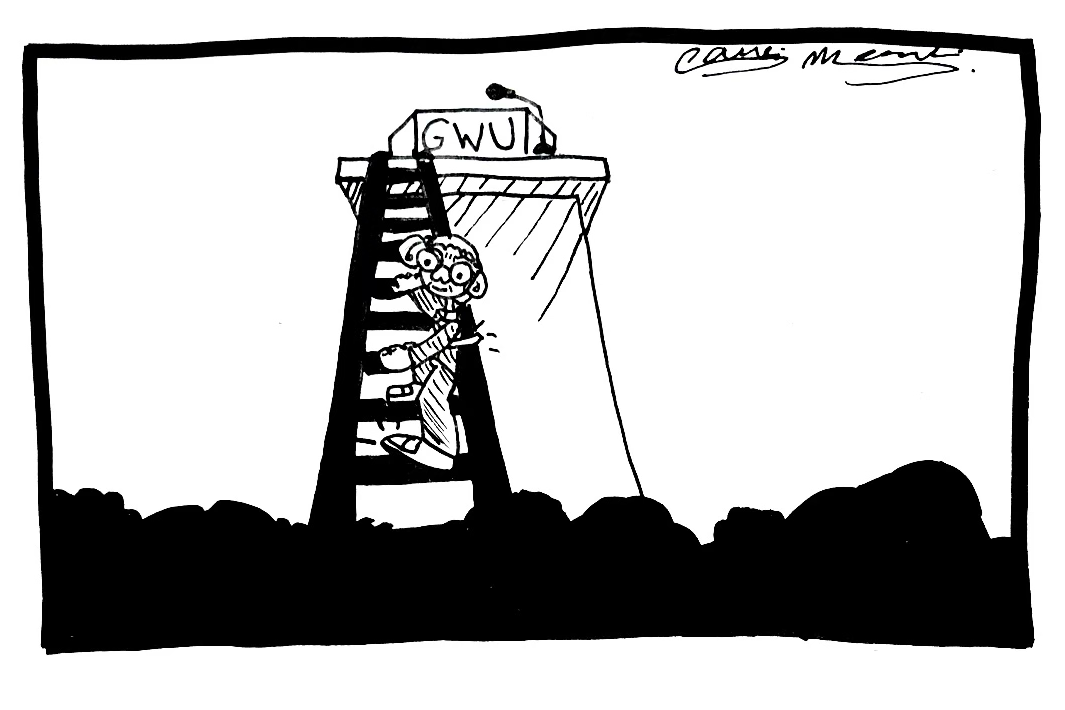The School of Medicine and Health Sciences received a subpar report on its racial diversity, equity and inclusion efforts earlier this month.
The medical school earned a B- on its racial diversity, equity and inclusion efforts on the basis of 14 different metrics, like whether the school promotes racist or white supremacist individuals and if the demographics of students and faculty adequately reflect the U.S. population’s racial diversity. The report card showed that the school does not proportionately represent black, Native American and Latino communities in faculty and students and that the Colonials moniker that hangs in the school’s rooms and hallways is offensive to some students.
The report card demonstrates the type of school aspiring medical professionals will soon leave to enter a field with pre-existing issues relating to racial inequality. The health care system in the United States is plagued with racism that sometimes leads to unfair health care for people of different races. There have been countless stories of patients who have been ignored or misdiagnosed for illnesses because of racial and cultural differences between patients and their doctors. The medical school needs to adequately educate its students and faculty on the racist history of health care and present ways to address issues of inequality as students enter the field.
Hospitals across the country have had research conducted about health care inequities between races, showing that lack of representation and historical power dynamics lead to unequal treatment of patients. The report showed that the medical school has inadequate racial representation, which could result in issues down the road if students are not initially exposed to a diverse academic environment. The medical school’s first goal should be to recruit students from all walks of life to strive for a more diverse workforce.
The report also states that medical school students could face issues interacting with patients of different backgrounds because they lack education on racial issues in the field. The medical school’s shortcomings could perpetuate issues that are already prevalent in the health care industry because students are not receiving enough education on racial problems in the field. Medical school students should be given classes focused on these inequalities to spread awareness of the issues before students trade in their caps and gowns for white coats. If students are at least aware of health care inequalities, they can form better relationships with patients they handle from all different racial backgrounds.
The mandatory course could teach students about the history behind many modern medicines and procedures and how medical practices are influenced – intentionally and unintentionally – by racial inequalities in health care. Educating students on the issues will help them navigate patient relationships and improve the quality of care given to everyone – regardless of race.
The school should also consider the benefits of hiring a more diverse group of medical school faculty. Including more diverse faculty will increase the perspectives being taught about health care practices and ways to interact with patients of different cultural and racial backgrounds. Increased perspectives among staff, along with an updated curriculum, will provide medical students with a deeper understanding of their roles in communities of color and how they can provide services equally for those communities.
Although D.C. is already a diverse place, many individuals in the University will not encounter the different types of communities they may serve until they leave the school to either work or complete their residency. The University needs to make real changes to ensure that students will be prepared to provide quality health care no matter where they end up.
Diversity is not just a box to check off, the University should seek improvements in the way it teaches racial inequality to its faculty and students and in its curriculum to prepare students for communities they will serve.
Hannah Thacker, a sophomore majoring in political communication, is the contributing opinions editor.
Want to respond to this piece? Submit a letter to the editor.



